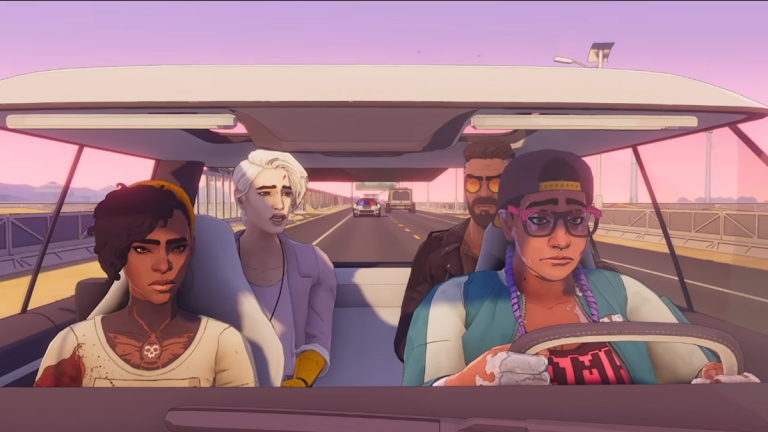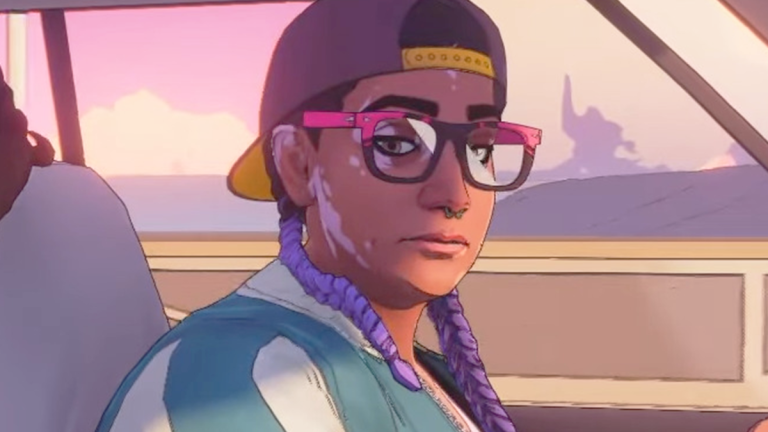‘Dustborn’ Director Refuses To Admit Game Was A Flop, Rejects Criticism Regarding Story’s Writing: “We Don’t Feel We’ve Made A Game That’s Primarily About Politics”

Quick question, dear reader: In regards to Dustborn, which is set in an alternate, fascist version of the United States, depicted said regime’s enforcers rejecting the idea of ‘politics in entertainment’, and had players using the idea of ‘canceling’ someone as a genuine combat mechanic, would you consider the game to be an explicitly political one, or one whose politics were incidental to its adventure?
Common sense suggests that most, if not all players would place it under the former label. However, the same cannot be said CEO of Dustborn developer Red Thread Games Ragnar Tørnquist, who believes that not only is his game apolitical, but that critics accusing it of being such are completely off-base.

Tørnquist, who also served as the game’s director, offered his thoughts on players’ rejection of his studio’s latest game during a recent interview given to Mikkjell Lønning, the Editor-in-Chief of the Norway-based video game news outlet Gamer.no, on the subject of the Dustborn backlash.
To start, the dev was directly asked by his host about the accusations that the game was pushing a “woke agenda”, to which the developer asserted, “It caught us completely off guard. We were very surprised by the extreme reaction to the launch, and we had no plan for how to handle it.”
From there, Tørnquist turned to speak on an alleged wave of harassment and death threats he and his team had supposedly received from critics, admitting to Lønning, “You can easily ignore what’s said on forums or on X. Emails feel a little closer to home, but receiving text messages where someone wishes you dead, is unsettling”.

“We are a tiny studio,” he added. “That’s why it feels so blown out of proportion when we experience so many attacks and conspiracies. It takes a toll.”
“It’s been really tough to deal with this,” Tørnquist continued. “We’re used to people not liking our games, but we appreciate well-argued reviews, even if they’re negative. The difference here is the massive amount of negative feedback from people who have never played the game and never will; they just jump on the bandwagon of those making videos”.
“We have to take the threats seriously,” he confirmed. “Fortunately, most of the team hasn’t been directly targeted. We’ve done what we can to support those who have received personal messages.”
“It’s tough to see people talk about their work, calling them incompetent or lazy, or saying they should just quit making games,” said Tørnquist. “It’s obviously difficult for us.”

Turning to discuss the game’s actual content, Lønning then moved to ask his guest if he had expected any “debate over some of the more obviously politically correct aspects of the game?”
In turn, Tørnquist explained, “Yes, but we were never out to provoke. We just wanted to make a game with characters that are different.”
“We didn’t think it would be so controversial that a group would fight against a fascist regime,” he detailed. “I don’t think many people want to live in a police state. And our version of the U.S. is by no means the real America.”
To this end, Lønning also pressed his guest as to the criticism of Dustborn’s highlighting of each character’s personal pronouns, including those who used non-standard ones.
“The use of pronouns has become relatively established in games, and we knew people could react to that,” said Tørnquist. “But it was the reality we wanted to present. We don’t feel we’ve made a game that’s primarily about politics. It’s more about language and relationships between people.”

For his next question, Lønning bluntly asked Tørnquist if Dustborn’s aforementioned combat system, which invites players to ‘cancel’, or ‘trigger’, or even ‘bully’ their opponents, was actually supposed to be “satire”.
However, rather than a direct answer, Tørnquist instead opined, “I think the game speaks for itself. It’s over the top in many ways.”
“It’s colorful, inspired by comic books, has fight sequences against giant robotic mascots, and it has a sarcastic view of the world. It doesn’t take itself very seriously,” he detailed. “I hope people can see the game and understand that it’s an alternate world, something that also applies to the story. The game may be a dystopian reflection of the world, but the story is not written for realism. It’s done with humor and exaggeration, and it’s very much tongue-in-cheek.”
With this explanation made, Tørnquist then turned to the game’s critics and argued, “It seems like people twist everything we say with malicious intent. They’ve created a narrative that Red Thread is corrupt and making propaganda, but the fact is that we’ve made a game we want to talk about and share with others. It’s not for everyone, and they don’t have to play it.”

On the subject of the game’s potential audience, Lønning inquired with his guest as to whether or not Dustborn , as claimed by critics based on its currently abysmal Steam sales numbers (per analytics outlet SteamDB, the game has, at best, sold only 7,000 copies through that specific platform) truly a sales ‘flop’.
“Dustborn is not a flop,” Tørnquist fired back. “The game has received mixed reviews but also a lot of positive feedback. Those who actually play it seem to enjoy it. Dustborn isn’t selling as much as we would like, but we’re proud of it and think it’s a good game”.
“Even though it’s not an immediate success, it has sold far more than what people are saying online, I can say that,” he further argued, before admitting, “Our internal goals for Dustborn haven’t been met, but that doesn’t mean it’s a flop.”
“It can take months and years for story-driven games like this to find their audience, so we’re not dissatisfied,” the dev added.

As their time together drew to a close, Tørnquist ultimately concluded his thoughts with a quick mention of the fact that despite Dustborn receiving such intense backlash, he and his team at Red Thread Games had no intent of changing the narrative direction of their projects.
“You start questioning decisions around character design, narrative, wording, PR, and even game mechanics,” he said.
“This stems from a greater nervousness about what reactions you might get. But we’re not going to stop being ourselves.”
Asked by Lønning if “the reception of Dustborn [had] affected your approach to development and the messages in storytelling going forward?”, Tørnquist asserted, “It’s hard to say no, even though I would like to. Everyone is afraid of the choices they make, and I don’t think that only applies to us. All our discussions about the next game are colored by this.”
“Diversity is positive for everyone,” he added. Games like Black Myth: Wukong, Mario, and Elden Ring won’t stop existing just because we release Dustborn. There’s room for both these games and everything in between – even those that only appeal to a limited audience.”

Finally asked by his host if said debate had “changed your view of the room for political messages in games?”, Tørnquist confirmed, “Absolutely not.”
“Some games are pure entertainment and focus on the player experience and fun, and it’s great that such games exist,” he argued. “Other games aren’t as fun to play but are more about the feelings you get from playing them. Then there are games that can address more serious topics.”
More About:Video Games






